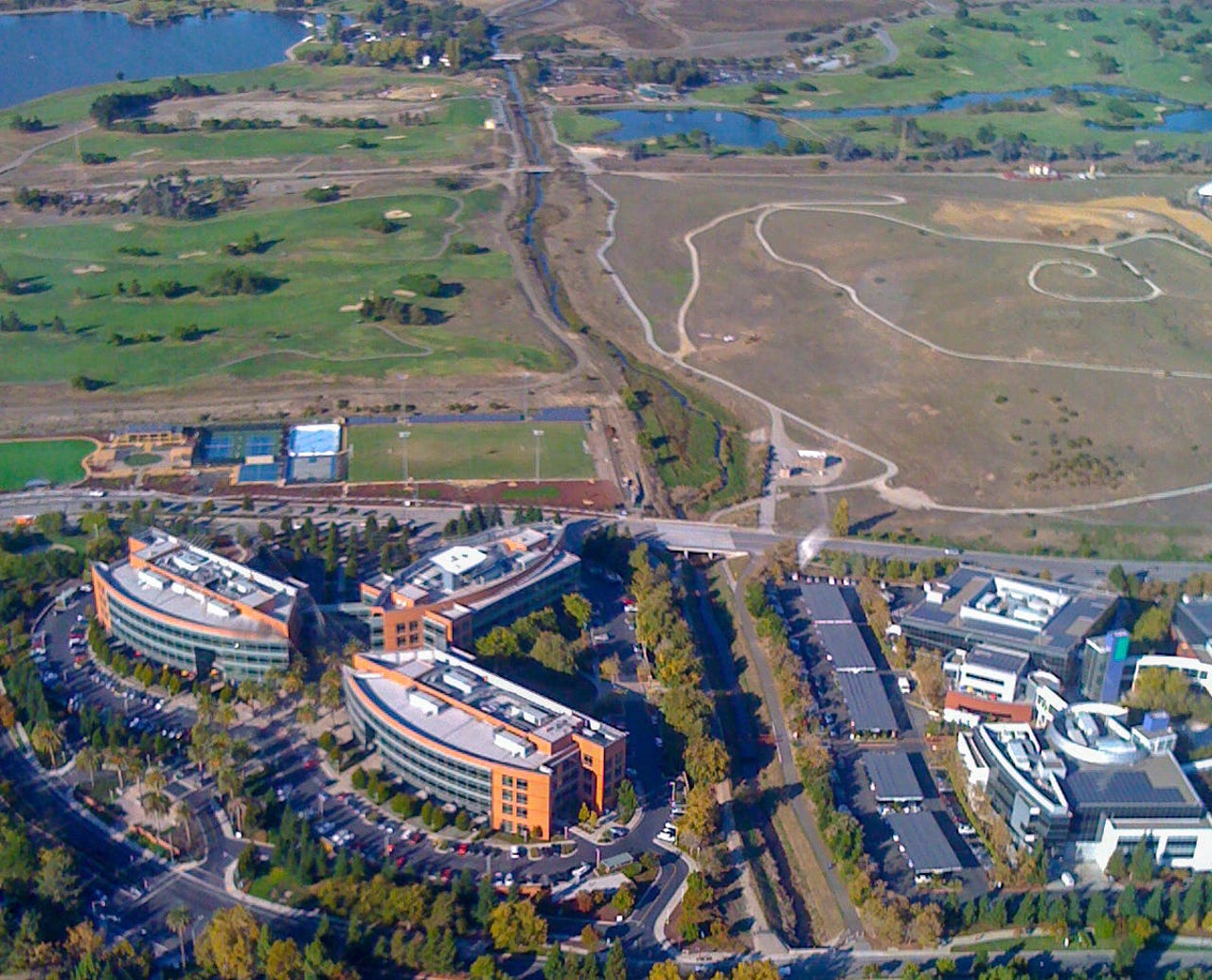The long demise of Silicon Valley… and its coming rise


Google's HQ from above.
People seem to love to read about the demise of Silicon Valley and it's largest city San Francisco, or at least the media loves to write that story, time and time again, and often on the slightest pretext.
For example, The San Francisco Chronicle's SFGate.com, carried a prominent article that a survey of startup founders shows that Silicon Valley is in danger of losing its tech leadership.
That sounds like dire news until you look at the survey and see it is based on the answers of a tiny group of 90 portfolio companies of VC firm Initialized Capital.
Kim-Mai Cutler, a partner at the VC firm, put together the survey. As a former tech industry, she knows how to lure reporters onto a story.
The minuscule survey found that 45 founders would consider starting a new company using a remote workforce.
On that basis SFGate.com felt justified to write this headline: "Bay Area may lose its title as the leading U.S. tech hub, new data finds."
A sample of very recent headlines about Silicon Valley:
- The rebellion against Silicon Valley (the place)
- Tech investor who proposed splitting up California is latest to threaten leaving the Bay Area
- Forget About San Francisco And Silicon Valley—Miami Is Planning On Becoming The Next Great Tech Hub
- Least affordable place for tech workers? Silicon Valley
Innovate anywhere but come to scale...
You can certainly start a startup anywhere but you have to come to Silicon Valley if you need to grow quickly. And in tech markets you have to scale quickly to survive. Facebook was founded on the East Coast at Harvard university and many other tech companies started elsewhere.
The attraction is that Silicon Valley has the private capital and the human capital to build a multibillion dollar company faster than any place on the planet bar none.
Human capital is the only way to transform private capital into massive profits. And Silicon Valley is where both are in abundance.
Human Capital Transforms Capital
Featured
Jedidiah Yueh is CEO and founder of Delphix. He sold his first company Avamar, based in Irvine (Southern California) to EMC in 2006. He located his next company, Delphix, in the heart of Silicon Valley.
He said that in Southern California it was difficult finding the specialists he needed for Avamar, which sold data deduplication technologies. This human capital problem slowed the growth of the company. But Silicon Valley doesn't have this problem.
Boom And Bust Cycles
I've reported on Silicon Valley since I arrived in San Francisco in 1984. And I've seen several boom-and-bust cycles. And each time the cycles get larger and have broader impact across the nation and the world. Each bust has the potential for worldwide effects but so does the boom.
Some signs of recovery are that rents are starting to rise slightly, VCs are raising ever larger funds; big tech companies are building huge areas of office and residential campuses; and tech IPOs are doing well.
Better Times Ahead...
Yes, the San Francisco Bay Area -- which includes San Jose, the tenth largest US city -- has suffered from the pandemic's economic effects.
People and companies have moved away. Rents have dropped by around a third in many cases over just a few months -- demonstrating the sharply lower demand.
But that's not a crisis. Many of the people who didn't like living in the Bay Area moved out because they are now able to work remotely. And the people who stayed -- and likely want to go back to working in an office -- now have cheaper rents. Plus the people who couldn't afford the rents are now moving in. It's a win-win-win situation.
Many Silicon Valley news stories, however, don't see cycles; they see either an unstoppable spiral of decline or an unending rise in rents and companies leaving -- yet neither are true.
The Boom is in the Bust
It has to be remembered that it is during Silicon Valley's bust cycles that the next generation of hot tech startups are created, that then fuel the coming boom.
Silicon Valley is not losing its leadership -- and now with lower costs it is a great place to start a new venture.